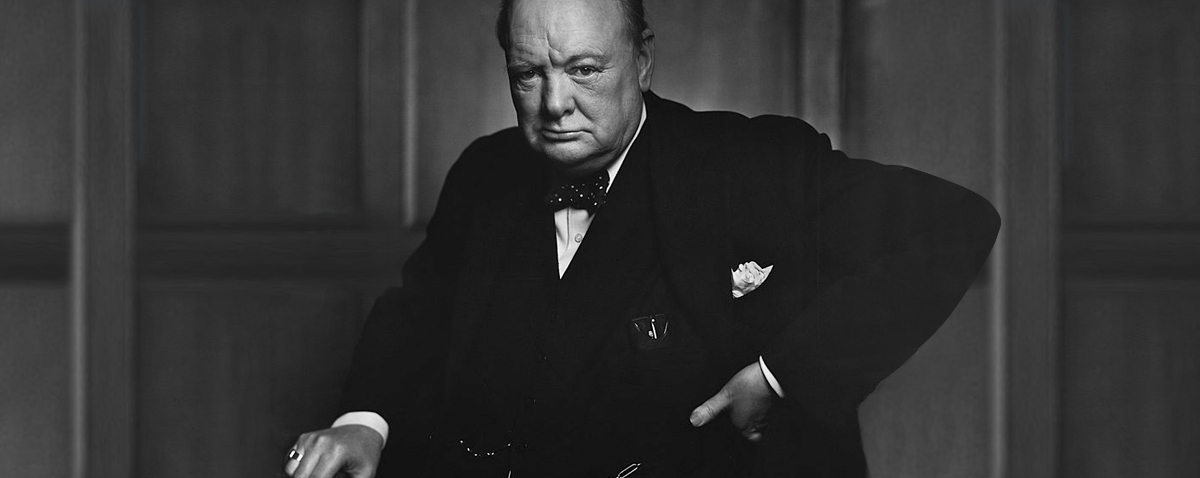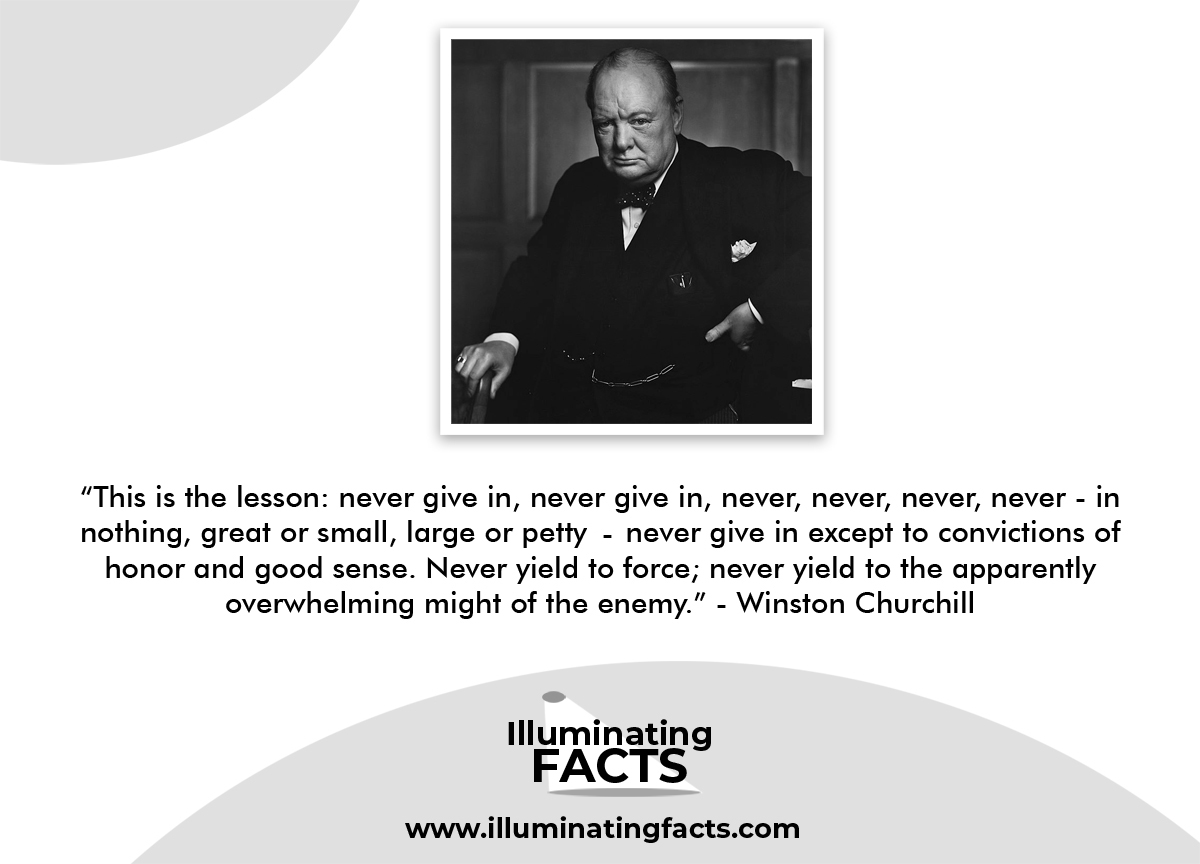Table of Contents
Real success rarely occurs in a split second. You can’t merely wish for something and expect it to come to you right away. True success calls for adversity, dealing with situations, overcoming defeats, and persisting in the face of several failures. Similar to how Sir Winston Churchill delivered his “Never Give In” speech in front of boarding school students he had once attended. At the time, he felt compelled to persuade the crowd with his words, “This is the lesson: never give in, never give in, never, never, never, never—in nothing, great or small, large or petty— never give in except to convictions of honor and good sense. Never yield to force; never yield to the apparently overwhelming might of the enemy.”
Who Was Winston Churchill?
Winston Churchill, also known as Sir Winston Leonard Spencer Churchill, was born at Blenheim Palace in Oxfordshire, England, on November 30, 1874. He was a journalist and a soldier after enlisting in the 4th Hussars in 1895. His dispatches from South Africa and India attracted a lot of attention. Sir Winston Churchill received the prestigious Nobel Prize in Literature in 1953. It was in honor of not only his literature but also of his stirring speeches, the impact of which could be felt all across the world.
He was one of the most well-known Britons of the 20th century who oversaw the Second World War while serving as prime minister. There is a statue of him outside Parliament, and many people worldwide consider him to be a hero. His speeches are among the most well-known in history. He is credited with being one of the key leaders in World War II that lead to the defeat of Nazi Germany.
Origin of the Quote
Churchill gave his “Never Give In” speech on October 29, 1941, while on a visit to Harrow School, a private boarding school for boys that he had attended in 1888. This speech was given as the United Kingdom persisted in its struggle against Nazi Germany while also receiving support from the United States in the form of war supplies to help them in World War II.
He emphasized in his speech that looks are frequently deceptive and that imagination can make situations appear much worse than they are. This relates to the dilemma they were in at the time when Great Britain was under-armed and losing to air strikes. But as he continued his speech, he gave hope to the listeners through his quote, “This is the lesson: never give in, never give in, never, never, never, never—in nothing, great or small, large or petty— never give in except to convictions of honor and good sense. Never yield to force; never yield to the apparently overwhelming might of the enemy.”
Meaning of the Quote
This remark can be taken to mean a lot of different things, especially when considered in the context of daily life. The few ideas from this remark that we can relate to are listed below.
Never Give Up
We gain a lot of knowledge when we persevere and decide not to give up. We can become aware of the strength and power we already possess. We acquire the ability to maintain our motivation. More significantly, we decide to keep trying and we discover how to successfully turn our failures into successes. We develop as role models for others and acquire the capacity to accomplish more in the future. Similar to Churchill, who gained widespread influence due to his strong-willed character.
Be Strong despite Hardships
Churchill persuaded his audience to persevere despite the difficulties they faced at the time due to the continuing war. Although he may not be able to do much to make their days better, his desire to keep fighting is encouraging. And through that, may we be reminded that while difficulties can be challenging, we are resilient and do not flee from them. Instead, we face with confidence and keep our heads high.
Silver Linings
Silver Lining. This idiom expresses the idea that there is always hope or something positive to be sought. Just like what Churchill said in his ‘Never Give In’ speech, he requested a tweak to one of the songs he heard throughout the concert in the spirit of this conviction. The phrase “nor less we praise in darker days” should be sung by the children instead of the word “darker.”
Conclusion
Whatever circumstances we may be, Sir Winston Churchill’s quote about never giving in will be our guide to continue with what we have started. It is necessary for us to have a strong-willed character, to keep trying and never stop working for our goals.
References:
BBC. (2019). Who was Winston Churchill and why was he important? Retrieved from https://www.bbc.co.uk/newsround/31043477#:~:text=Churchill%20is%20best%20remembered%20for,most%20famous%20British%20prime%20minister/ [Accessed August 27, 2022]
Churchill, W. (1941). WINSTON CHURCHILL’S ‘NEVER GIVE IN’ SPEECH. Retrieved from https://www.commonlit.org/en/texts/winston-churchill-s-never-give-in-speech/ [Accessed August 27, 2022]
National Trust. (n.d). Churchill’s highest literary honour. Retrieved from https://www.nationaltrust.org.uk/features/churchills-highest-literary-honour#:~:text=In%201953%2C%20Sir%20Winston%20Churchill,influence%20reverberated%20around%20the%20globe./ [Accessed August 27, 2022]
Nicholas, H. G. (2022, August 23). Winston Churchill. Encyclopedia Britannica. https://www.britannica.com/biography/Winston-Churchill/ [Accessed August 27, 2022]




